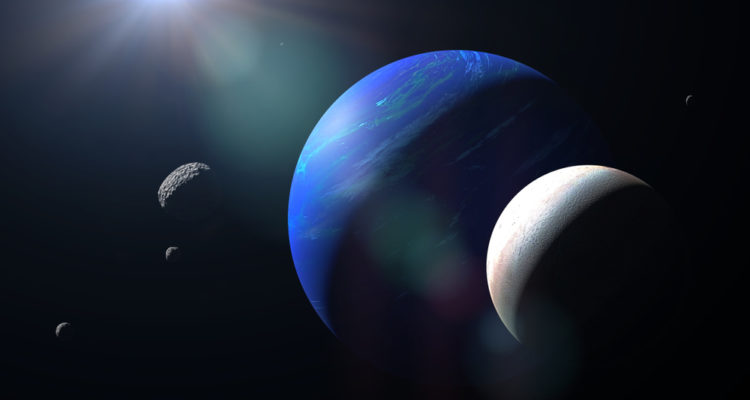A Weizmann institute-designed spacecraft is in the running to be chosen by NASA for a 2026 mission to Neptune.
By Lauren Marcus, World Israel News
A Weizmann Institute-designed spacecraft is in the running to be chosen by NASA for a mission to Neptune. The craft, named Trident, has received over $3 million in funding to enable researchers to search for signs of life and study the atmosphere and oceans of the planet Neptune’s moon, Triton.
After last July’s crash landing of the Israeli aircraft Beresheet on the moon, the Neptune mission may be the Jewish state’s attempt at redemption in space exploration.
Trident was chosen among 22 competitors and is currently one of four projects remaining in the final stage of selection. NASA will choose two crafts for the 2026 launch. The craft are expected to arrive at Neptune in 2038.
One of the critical features above the Israeli craft is a hyper-accurate clock, built by Jerusalem-based firm Accubeat. The clock, which loses less than one second every million years, will be able to record, measure, and transmit data about Triton’s atmosphere.
Professor Yohai Caspi of the Weizmann Institute’s Earth and Planetary Sciences Department spoke about the project’s goals with ILTV News. One of the main aims of the mission will be investigating Triton’s subsurface ocean.
“The spacecraft will be measuring the thickness and mass of this ocean,” said Kaspi.
“Moreover, in some places, this ocean spills out. We have geysers that are going from the interior to the atmosphere, which is carrying the material around, and that’s something we’ll be measuring with the spacecraft.”
To the delight of those who are curious about life on other planets, Caspi directly alluded to the possibility of finding life forms within Triton’s deep oceans.
“It might even have life in it. We have life very deep in the oceans on Earth, where there’s no sunlight, so maybe there’s a similar state on this moon,” Kaspi said to ILTV News.
Kaspi also explained that Triton’s atmosphere is another main focus for investigation. “We’ll be learning about a very unique atmosphere that hasn’t been observed before on any other moon in the solar system.”
But it’s not just the moon’s atmosphere that makes it unique. Triton spins the opposite direction of Neptune, suggesting that it likely did not originate in Neptune’s system. So in studying Triton, Caspi said, “We’re actually learning about an object from outside our solar system.”
“This is something very new,” he said.





